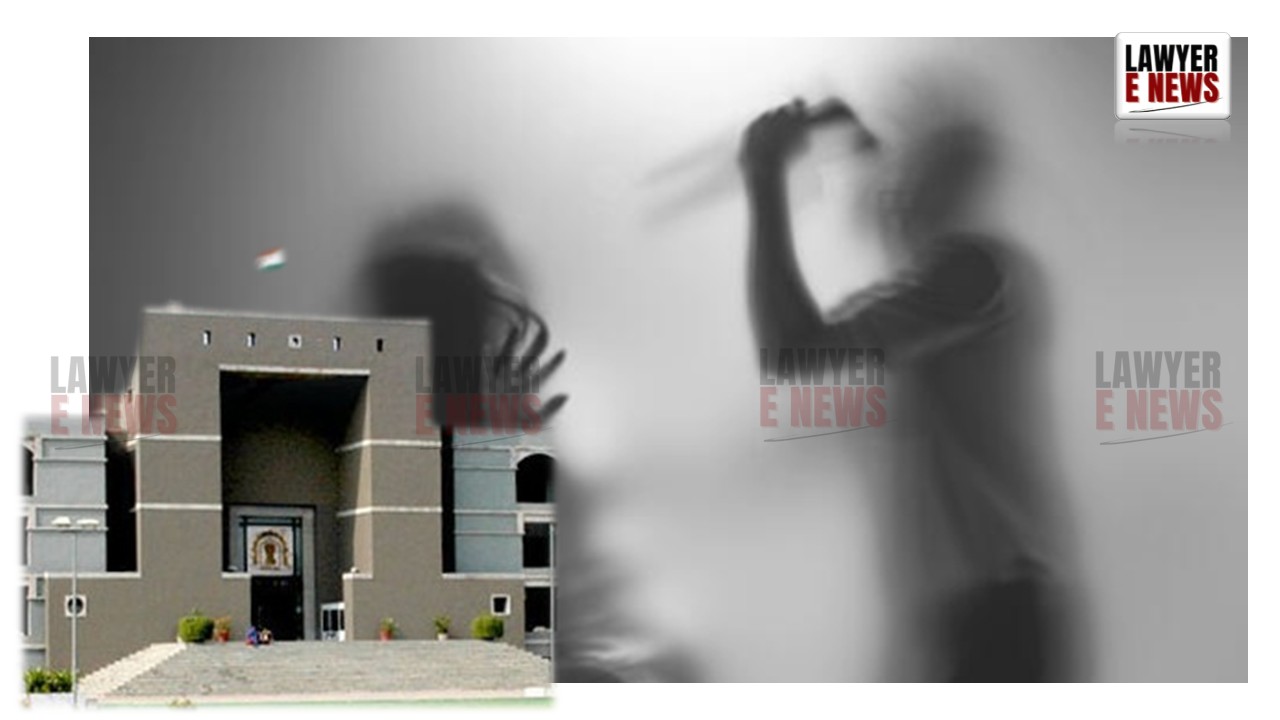-
by Admin
18 February 2026 2:25 PM



“False in One Thing Does Not Mean False in All”— In a powerful reaffirmation of evidentiary principles and justice delayed, the Gujarat High Court reversed a 1997 acquittal and convicted the primary accused for murder under Section 302 IPC. The Court held that the Trial Court erred in discarding the consistent testimony of multiple eye-witnesses and medical evidence due to minor contradictions, stating: “The Trial Court fell in error in discarding the medical evidence also… minor discrepancies cannot entirely discredit the secure ocular evidence of assault by the accused no.1.”
The case stemmed from a brutal incident on the night of 16 August 1995. The accused, Dilip Bhikhabhai (brother of the complainant), allegedly stormed into the house of his sister and stabbed her husband, causing his death. The incident was witnessed by several individuals, including the complainant (PW-1), her daughter, and neighbours.
In 1997, the Sessions Court acquitted all five accused, citing inconsistencies between witness statements and medical evidence, particularly regarding the nature and location of injuries. The State appealed under Section 378 CrPC.
“Falsus in Uno Falsus in Omnibus Not Applicable in India”
The Division Bench of Justices A.S. Supehia and Gita Gopi thoroughly examined the witness testimonies, medical findings, and forensic reports. The complainant and four eye-witnesses consistently testified that accused no.1 stabbed the deceased twice with a knife—on his chest and back. The post-mortem report corroborated this with injuries matching the dimensions of the recovered weapon.
The High Court emphasized that: “Testimony of the eye-witnesses cannot be disregarded merely because they are related to the victim… they established themselves as reliable witnesses.”
Rejecting the Trial Court’s over-reliance on minor contradictions, the Court invoked the Supreme Court’s dictum in Gangadhar Behera v. State of Orissa and State of Punjab v. Jagir Singh, observing: “Falsity of a material particular would not ruin the evidence from beginning to end… The maxim ‘falsus in uno falsus in omnibus’ has no application in India.”
On Medical and Forensic Evidence: “Corroborates and Complements Eyewitnesses”
The medical officer (PW-3) confirmed that the stab wounds were consistent with the muddamal knife recovered during investigation. Forensic reports established that the blood on the knife matched the deceased’s blood group.
The knife was recovered from beneath a stone in a riverbed, not accessible to the public, following a disclosure statement made by the accused. The Court found: “The discovery of weapon is proved and directly links the crime to accused No.1… It corroborates the eye-witness accounts.”
Acquittal of Co-Accused Upheld
While convicting Dilip Bhikhabhai, the Court upheld the acquittal of co-accused (his sisters), noting that no conclusive evidence established their participation in the murder or a shared “common object” under Section 149 IPC.
“Their presence at the scene is proved… but not their involvement or instigation… Their presence was natural as siblings living nearby.”
Having found accused no.1 guilty under Section 302 IPC, the High Court sentenced him to life imprisonment. However, taking note of his medical condition—paralysis and throat cancer—the Court allowed him six months to surrender and directed that he be given full medical assistance in custody.
“The evidence clearly establishes the intention to commit murder… The conviction under Section 302 is restored, and life sentence is imposed.”
Date of Decision: 21 April 2025
